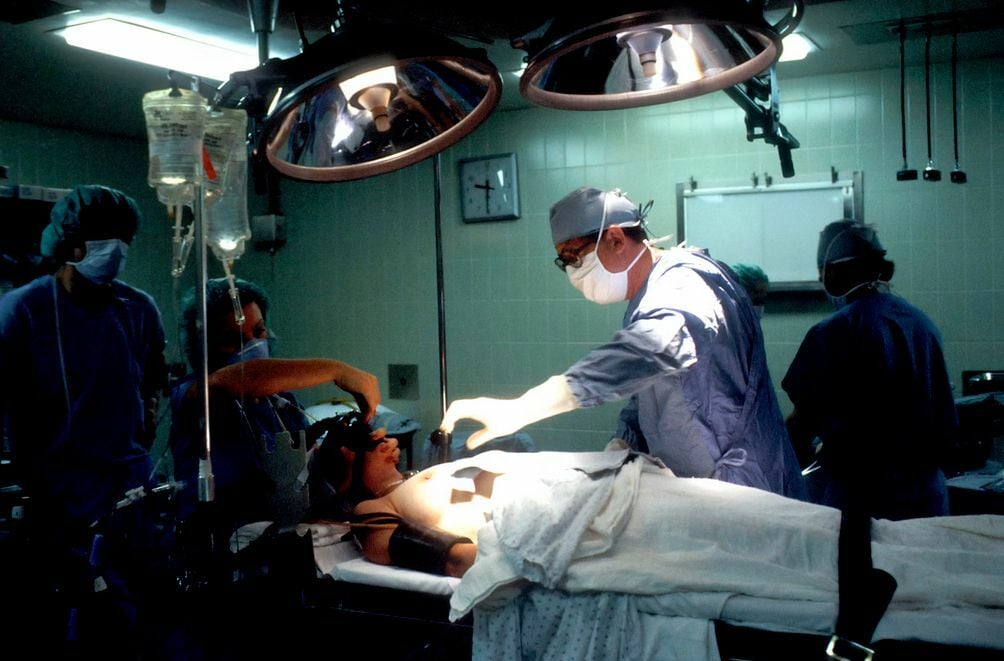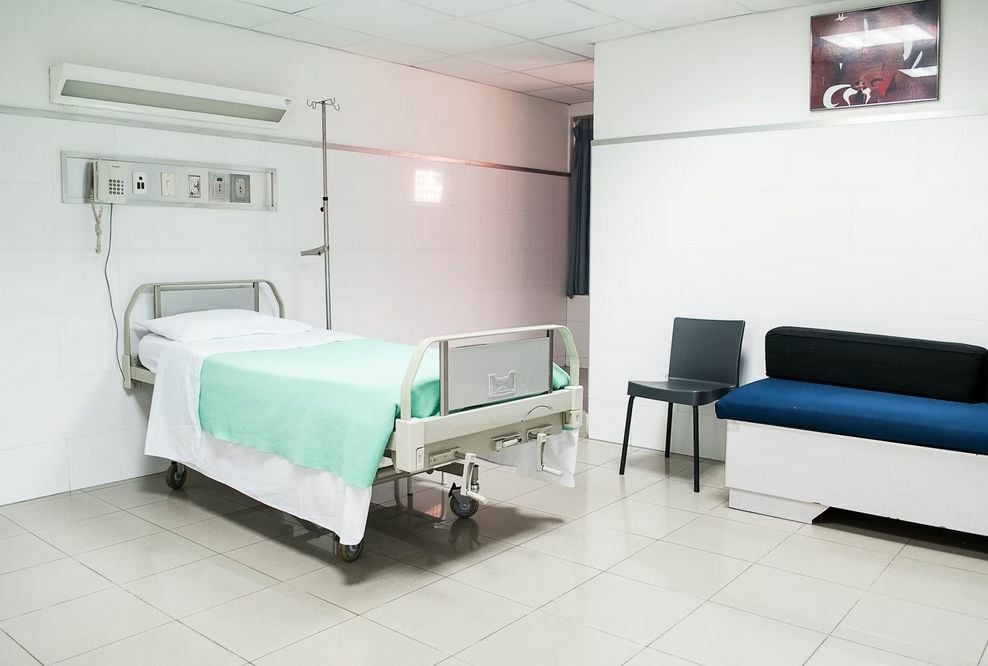Thailand’s healthcare system and healthcare insurance options for non-Thai nationals

Thinking about living in or visiting Thailand? Understanding the healthcare system and your insurance options or hospital insurance is crucial. Thailand boasts a robust healthcare infrastructure, blending modern medical technology with traditional practices, making it a popular destination for medical tourism. Navigating insurance options is equally important. Whether you’re an expat, a long-term traveller, or just visiting, having the right health insurance can make all the difference.
An overview of healthcare in Thailand
Thailand boasts a robust healthcare system, blending public and private sectors. Ranking fifth globally and first in Asia on the 2021 Global Health Security Index, it offers quality care.

Public healthcare system
The public healthcare system in Thailand serves 98% of the population. Managed by the Ministry of Public Health (MOPH), it’s generally free for Thai citizens. Public funding ensures broad access to medical treatments through hospitals, clinics, and healthcare centres nationwide. Foreigners can access services at government hospitals, often at a reasonable cost. Facilities like Siriraj Hospital highlight the extensive network providing essential healthcare. Hospital insurance can be crucial for non-citizens using these services to manage expenses.
Private healthcare system
Private healthcare in Thailand offers advanced medical facilities and specialised treatments. Although pricier, private hospitals like Bumrungrad International Hospital attract international patients seeking rapid care. These institutions provide high-quality services, including shorter wait times, modern equipment, and highly trained staff. For expats and long-term travellers, private healthcare insurance is beneficial. It covers the high costs associated with private medical care and ensures access to top-tier services. Making informed choices about healthcare providers can enhance your healthcare experience in Thailand.
How good is healthcare in Thailand?
Thailand’s healthcare system ranks among the best globally. Introduced in 2002, the universal coverage programme guarantees all citizens access to essential health services.

The structure of the health sector
Thailand’s healthcare system relies mainly on taxes to fund its operations. The three main health insurance schemes offer specialised coverage. The Universal Coverage Scheme serves the general population, giving comprehensive care. The Civil Service Welfare System caters to government employees. The Social Security Scheme targets private-sector workers. These systems work together to reduce financial barriers, especially for less affluent citizens.
Services provided by public and private hospitals
Public hospitals in Thailand offer a wide range of medical services. They provide preventive, curative, and palliative care. Public facilities are generally more affordable due to government funding. In contrast, private hospitals deliver high-end, specialised treatments. They cater primarily to those needing quicker service and advanced procedures. Both public and private hospitals ensure quality care, with public hospitals focusing on accessibility and private ones on luxury and convenience.
Accessibility and availability of services
Thailand ensures high accessibility to healthcare services. Rural areas benefit from improved medical infrastructure, reducing the urban-rural health gap. You can find healthcare services even in remote regions. Urban centres offer a broader range of specialised services. The universal coverage programme ensures all citizens have some form of healthcare insurance, improving service availability countrywide. Emergency services are readily accessible in both public and private hospitals.
Degree of technology and medical advancements
Thailand employs advanced medical technologies in its healthcare system. Both public and private hospitals utilise modern equipment. Medical professionals in major cities use cutting-edge technologies for diagnosis and treatment. Telemedicine services are increasingly prevalent, enhancing accessibility. Thailand also participates in international medical research, contributing to global advancements. By integrating state-of-the-art technology, Thailand continues to elevate its healthcare standards.
Private care Vs. Public care in Thailand

Public care in Thailand
Public care offers extensive coverage to Thai citizens through the Universal Coverage Scheme (UCS). Managed by the Ministry of Public Health (MOPH), public hospitals provide mostly free treatment services. However, you may face long waiting times and crowded areas. Language barriers might also be an issue since many staff members don’t speak English. While the basic medical care is reliable, technology in public hospitals may lag behind private facilities.
Private care in Thailand
Private hospitals dominate urban areas, particularly Bangkok. They provide shorter waiting times and advanced medical technology. These hospitals are ideal if you prefer minimal delays and modern equipment. Private care often includes staff fluent in English, ensuring smoother communication. Although services are typically more expensive, investing in healthcare insurance can help manage costs effectively. Many expats and travellers opt for private hospitals due to the enhanced convenience and quality of care.
How to access and receive healthcare in Thailand
Who can access healthcare in Thailand?
Thailand’s healthcare system and hospital insurance is available to both citizens and legal residents. You can access healthcare through several schemes. The Universal Coverage Scheme (UCS) serves the majority, about 71.3% of the population, which includes all general tax-paying residents. If you’re employed in the private sector, Social Security covers you and accounts for about 19% of the population. For civil service workers and their dependents, the Civil Servant Medical Benefit applies, covering 7.7% of people. Private health insurance options exist for those who don’t qualify under these schemes, including short-term visitors or tourists who may need hospital insurance.
Can expats use the public healthcare system?
Expats can use Thailand’s public healthcare system, but this usually comes at a cost. Foreigners are charged for treatments at government hospitals, with fees that vary based on the type of treatment and hospital. If you’re an expat working legally in Thailand, you may be covered under the Social Security scheme. You’ll find quality services in these hospitals, though it helps to understand Thai. Public hospitals offer essential care, but waiting times can be long. Private healthcare insurance is often recommended for better service and shorter waiting times in private facilities.
Cost of healthcare in Thailand
Thailand offers high-quality healthcare at affordable prices, a major attraction for medical tourists. Many hospitals are Joint Commission International (JCI) certified, ensuring top-tier standards.
Cost of major surgeries in Thailand
Thailand provides various major surgeries at lower costs compared to many countries:
| Procedure | Estimated cost |
| Heart bypass surgery | 485,000 baht (£10,800) |
| Heart valve replacement | 930,000 baht (£21,000) |
| Hip replacement (1 side) | 395,000 baht (£8,800) |
| Knee replacement (1 side) | 350,000 baht (£7,800) |
| Gastric bypass | 440,000 baht (£9,800) |
| Phaco monofocal lens (per eye) | 86,000 baht (£1,900) |
| Spinal fusion (exclude implant) | 400,000 baht (£8,900) |
These surgeries are performed in well-equipped hospitals with highly skilled medical professionals.
Cost of accident or unexpected illness treatments in Thailand
Thailand also offers affordable care for accidents and unexpected illnesses:
| Service | Estmated cost |
| Emergency room visit | 3,100 – 6,200 baht (£70-£140) |
| Emergency room visit | 14,000 – 27,000 baht (£320-£600) |
| Standard hospital room (per day) | 1,800 – 3,100 baht (£40-£70) |
Hospital insurance can help mitigate these costs, giving you peace of mind during emergencies.
Cost of dental treatments in Thailand
Dental care in Thailand is both high-quality and economical:
| Procedure | Estimated cost |
| Teeth cleaning | 900 – 1,800 baht (£20-£40) |
| Tooth extraction | 1,300 – 2,600 baht (£30-£60) |
| Dental implant | 38,000 – 53,000 baht (£850-£1,200) |
| Crowns (per tooth) | 13,000 – 18,000 baht (£300-£400) |
These services are available in many dental clinics nationwide, providing you with extensive options based on your needs.
Choosing the right insurance plan
Selecting the best healthcare insurance is vital for accessing quality care in Thailand. Consider the specific coverage and benefits to find the most suitable plan for your needs.
Hospitalisation coverage
Hospital insurance is critical in Thailand, especially for serious illnesses and surgeries. Ensure the plan covers inpatient services, including room charges, surgical costs, and medical tests. Public hospitals like Siriraj offer affordable options, while private ones like Bumrungrad offer premium services. Verify if your insurance includes preferred hospitals to avoid out-of-pocket expenses. Foreigners should check for plans that cover international and local facilities. Confirm the policy’s cap on hospitalisation benefits, as some might have limits.
Outpatient care
Outpatient care covers treatments that don’t require hospitalisation. This includes doctor visits, diagnostic tests, and minor procedures. Some insurance plans offer inclusive outpatient services, which can reduce overall healthcare costs. Public schemes like the Universal Coverage Scheme cover essential outpatient care for Thai citizens. Private insurance might provide broader options, including wellness check-ups and specialist visits. Assess the outpatient coverage details to ensure it meets your medical needs, considering any pre-existing conditions.
Emergency services
Emergency services are crucial for unexpected medical situations. Check if the healthcare insurance plan covers ambulance services, emergency room visits, and acute care costs. Public insurance schemes in Thailand typically include emergency cover, but this might be limited in scope. Private insurance often offers more comprehensive emergency services, which can be essential for expatriates and high-risk groups. Evaluate the speed and accessibility of emergency response services included in the plan to guarantee timely assistance during critical times.
The perfect health insurance for you
When it comes to finding the ideal health insurance in Thailand, Cigna stands out. Their comprehensive plans are tailored to meet the diverse needs of expatriates, ensuring you receive top-quality care with financial peace of mind.
Overview of Cigna’s coverage options
- Silver plan: Essential inpatient and day-patient coverage, ideal for those prioritising core health assurance.
- Gold plan: Increased coverage limits and maternity care, suited for expanding families.
- Platinum plan: Unlimited annual coverage, perfect for individuals requiring comprehensive medical facilities.
Why Cigna?
- Comprehensive Protection: Covers a broad spectrum of healthcare needs, from cancer care to infant services.
- Global Flexibility: Offers worldwide coverage with the option to exclude the USA, catering to frequent travellers.
- Customisable Coverage: Add-ons for outpatient care, dental, vision, or evacuation services tailored to your needs.
- Private Hospitalisation Benefits: Includes private room accommodation and high coverage limits—up to 72,300,000 THB with the Gold Plan.
Discover the perfect health insurance for you. Click the button below to get your free quote and explore Cigna’s insurance options, which are designed for expatriates in Thailand.
Latest Thailand News
Follow The Thaiger on Google News:


























